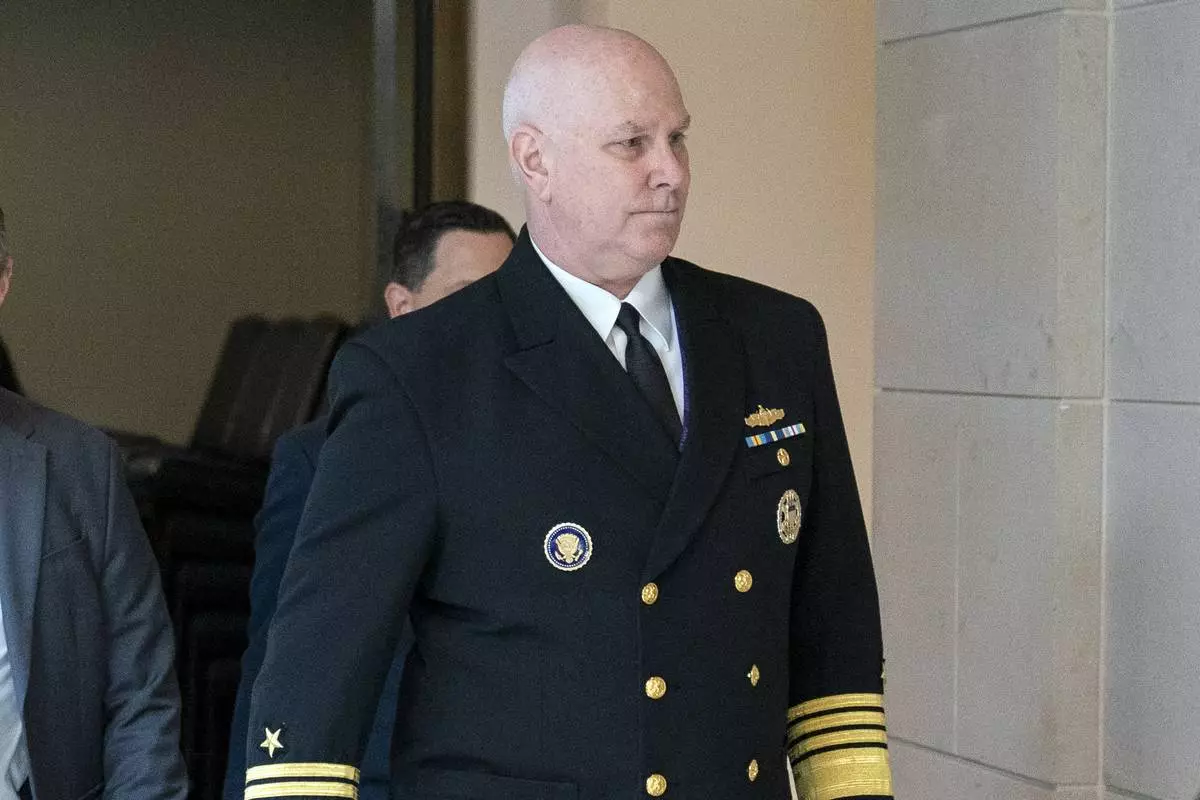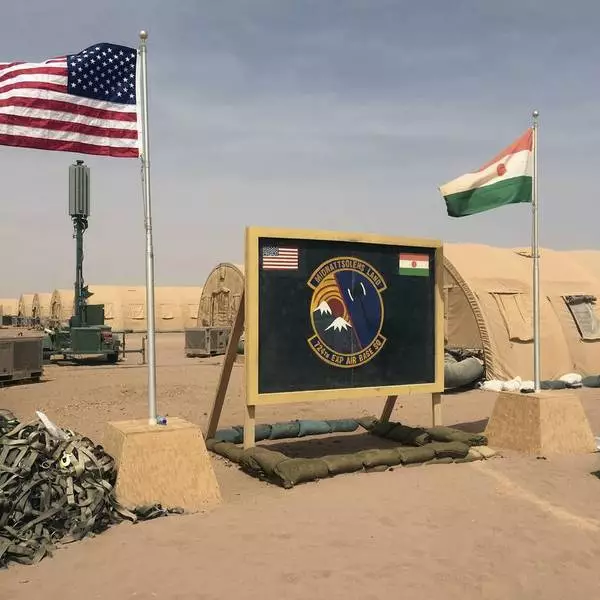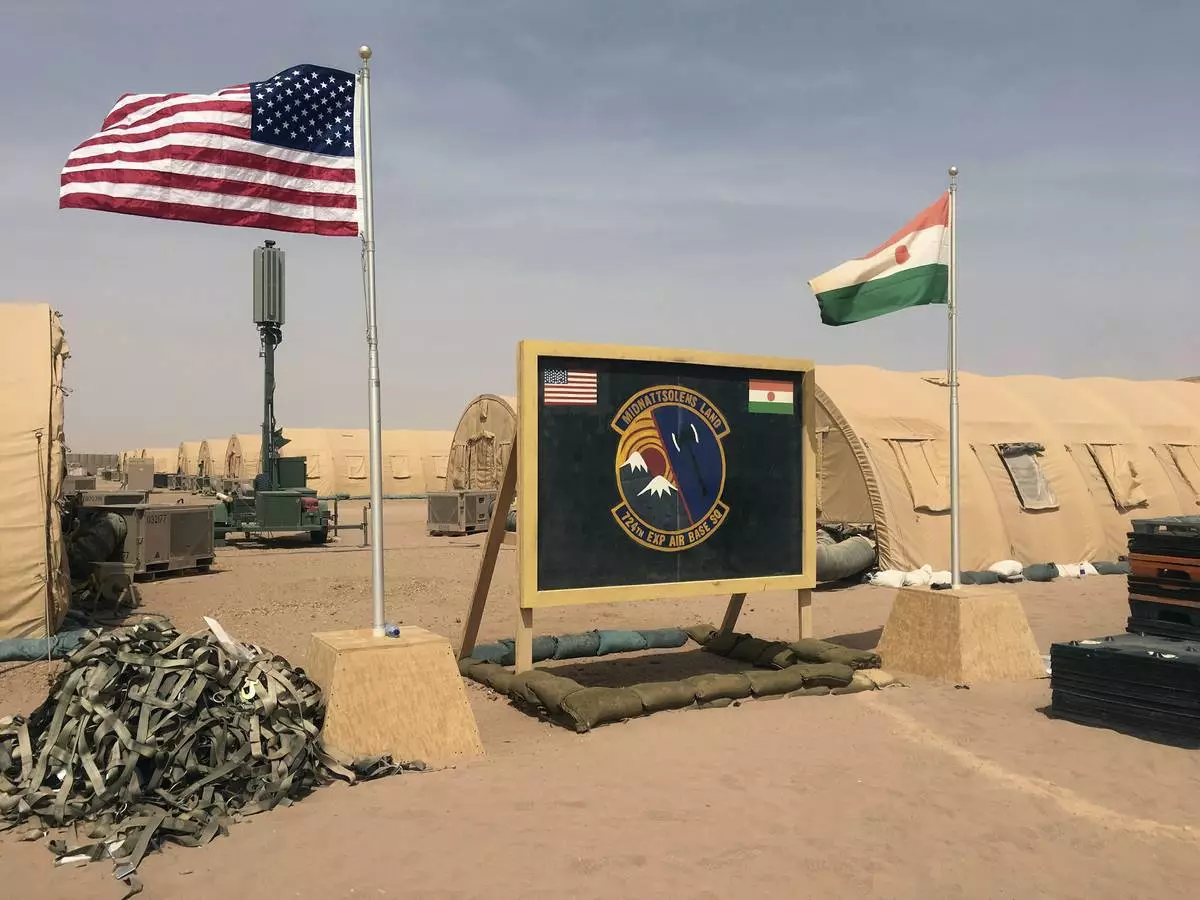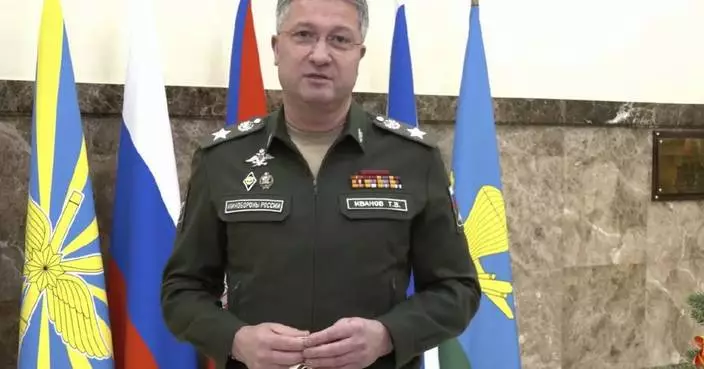NATO defense ministers met Thursday in a fresh show of resolve against Russia and played down a series of festering trans-Atlantic disputes that threaten to undermine unity across the 29-nation military alliance.
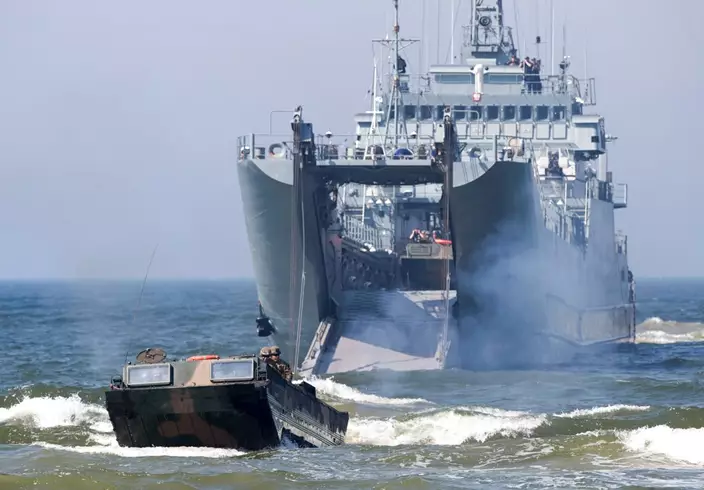
Poland's navy ships and U.S. marines take a part in a landing operation during military Exercise Baltops 2018 at the Baltic Sea near village Nemirseta in Klaipeda district, some 340 kms (211 miles) west north of the capital Vilnius, Lithuania. Lithuania, Monday, June 4, 2018. (AP Photo/Mindaugas Kulbis)
At a meeting in Brussels, the ministers unveiled a new plan to reinforce their presence in any European crisis with the deployment of 30 troop battalions, 30 squadrons of aircraft and 30 warships within 30 days. Details of the plan, drawn up by the U.S. and to be in place by 2020, remain sketchy.
They also made official staffing levels of more than 1,200 personnel for new commands covering the Atlantic Ocean — based in Norfolk, Virginia — and in Ulm, Germany, handling logistics during any conflict on mainland Europe.
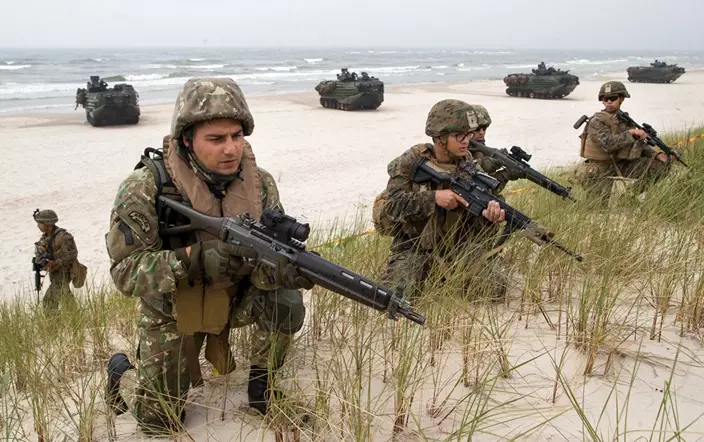
U.S. Marines take a part in a landing operation during a military Exercise Baltops 2018 at the Baltic Sea near village Nemirseta in Klaipeda district, some 340 kms (211 miles) west north of the capital Vilnius, Lithuania. Lithuania, Monday, June 4, 2018.(AP Photo/Mindaugas Kulbis)
"We have decided further steps to strengthen our shared security and boost defense and deterrence against threats from any direction," NATO Secretary-General Jens Stoltenberg told reporters. He said the two commands will help "ensure we have the right forces in the right place at the right time."
Relations between NATO and Russia are at their lowest ebb since the Cold War, a fact the alliance says is due to Russia's destabilization of Ukraine and its 2014 annexation of Ukraine's Crimean Peninsula.
The meeting comes just five weeks before a summit of NATO leaders, to be attended by U.S. President Donald Trump.
A year ago, Trump embarrassed U.S. allies outside their new billion-euro headquarters by publicly berating them for failing to spend enough on their defense budgets.
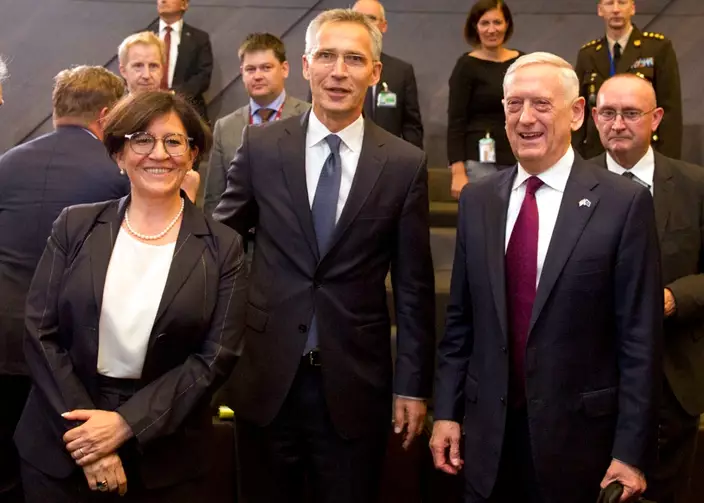
Italian Defense Minister Elisabetta Trenta, left, poses with NATO Secretary General Jens Stoltenberg, center, and U.S. Secretary for Defense Jim Mattis, right, during a meeting of NATO defense ministers at NATO headquarters in Brussels, Thursday, June 7, 2018. (AP Photo/Virginia Mayo)
Over the past year he has pulled the U.S. out of the Paris climate change agreement and a deal limiting Iran's ability to develop nuclear weapons. At great expense, European allies are trying to keep that Iran deal afloat. Then on June 1, Trump slapped tariffs on steel and aluminum imports from allies in Europe and Canada, citing national security concerns.
Stoltenberg says the U.S. is investing more on European defense than ever despite the trans-Atlantic differences.
"Many ministers highlighted the importance of NATO unity and that we have to stay united, especially when we see that Russia tries to divide us," he said.
Before the meeting, U.S. Defense Secretary Jim Mattis said he did not expect the trade rift to damage military ties.
The tariffs issue is a delicate one for Mattis, who has placed great emphasis on nurturing and strengthening relations with allies, particularly in NATO, where he has pushed member countries to spend more on their own defense and to help combat Islamic extremists.
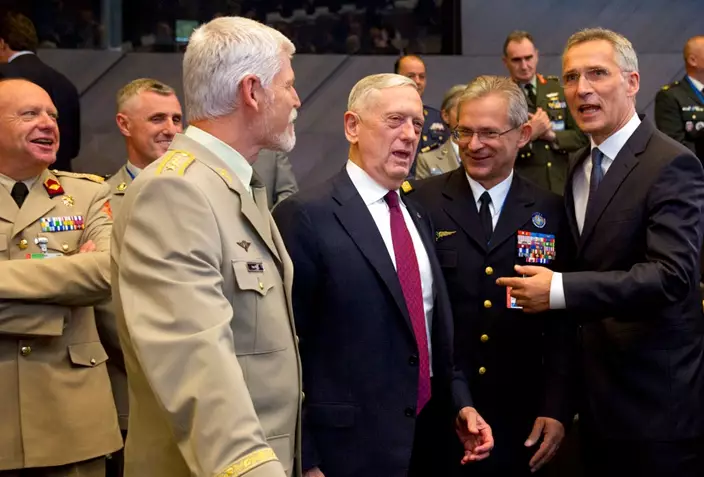
U.S. Secretary for Defense Jim Mattis, center left, speaks with Supreme Allied Commander, Transformation, General Denis Mercier, center right, during a meeting of NATO defense ministers at NATO headquarters in Brussels, Thursday, June 7, 2018. NATO defense ministers gather Thursday determined to show fresh resolve against Russia while hoping to prevent a series of festering trans-Atlantic disputes from undermining unity across the 29-nation military alliance. (AP Photo/Virginia Mayo)
Asked whether he thinks the Trump tariffs will hurt security ties with NATO partners, including Canada, Mattis said: "Right now I don't see that."
"And I think it's still premature to call it a trade war," he said.
The issue of "burden-sharing" — NATO parlance for spending enough and making the right military contributions — is a hot topic with Trump. Stoltenberg released what he said were new figures showing that the allies have spent $87 billion more on defense since 2014. He said 2018 is the fourth year in a row that defense spending has increased.
NATO expects that eight of its members will be spending the target of 2 percent of GDP on military budgets this year. Just over half the allies — 15 of them — have provided action plans laying out how they will close in on that benchmark by 2024.
Germany lags in defense spending and is likely to face more criticism from Trump next month.



